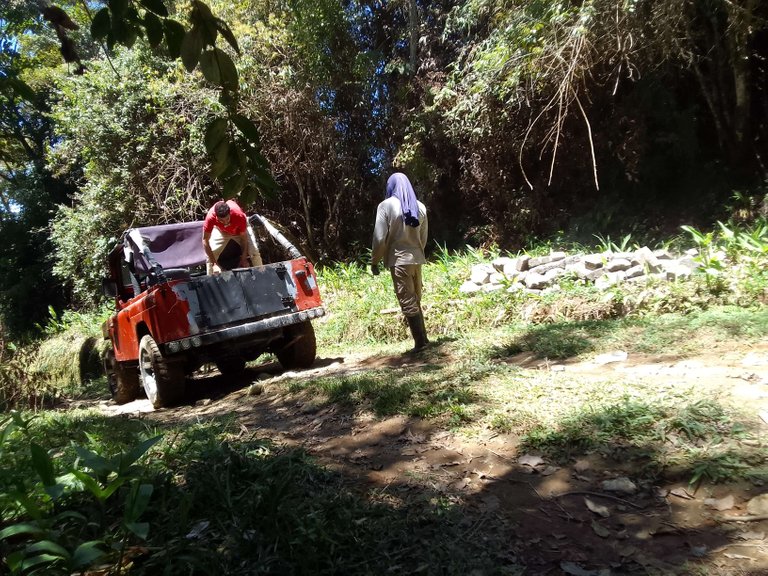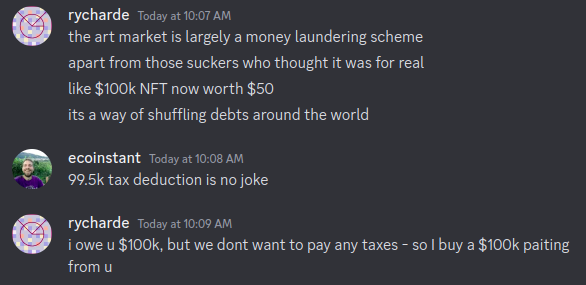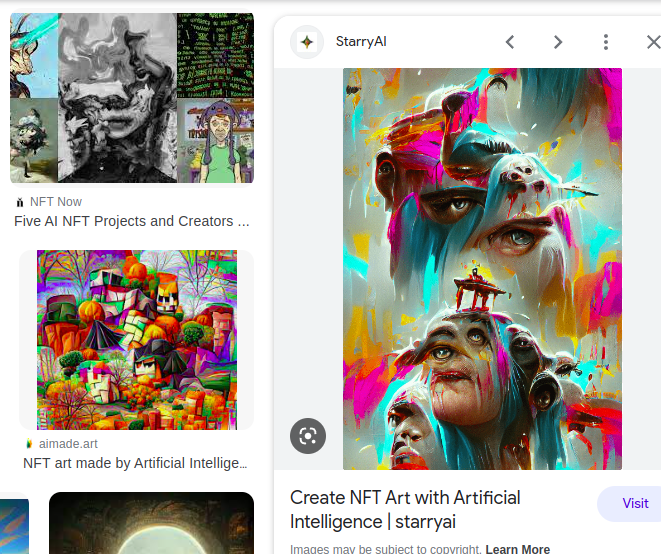We keep working hard, building with synergy on multiple fronts - we live and love the 'expanding pie' reality of development. You might say its 'what I do'. Many of these things exist in the physical world. Building roads is a classic example of expanding the pie - the returns on investment are enormous especially at small scale.

Now, physical resources are zero sum. These rocks we are bringing up cannot be used elsewhere. And if we leave them down by the state road where they were dumped off for us, and some one scoops them up, we can no longer use them.
So while we can engage in expanding pie activities in the physical world (real development), we cannot and should not 'steal resources'. It is illegal and the truth is that stealing resources results in negative energy/karma/vibration that pulls communities apart and often makes the pie smaller.
But digital resources are different. Consider a pdf document, in some sense it is truly infinitely replicatable.
And no amount of IP laws can put the genie back into the bottle. Using old monetization theories that treat digital items like physical items are like Luddites breaking machines so they can do more labor by hand. One thing about tech is that you can't change what is possible, but you can adjust your model.

There are many, many use cases to sharing information in an uncensorable way. One recommendation is to think about banned and censored books and articles, text content that is hard to find or even 'shadowbanned' and ignored. Consider this in the context of some new use case for HIVE custom json.
And consider, that with crypto in general, and as @edicted has said many times, there are so many use cases that show that the legacy system just isn't prepared to deal with. Consider the classic art scam, now updated modern and digital.

Person A owes Human B $1 million dollars, perhaps the result of a friendly wager. What is the best way to pay that debt? I could take a suitcase full of cash and give it to you if I have cash to launder, but then you will have to launder it. We will also have to meet in person to exchange physical payment, which may not be ideal (and also offers a 'honeypot' moment), when info about the payment may be public.
Consider that Person A has a stake of ETH that they bought for $11 dollars, and if they sell that to fiat they will immediately owe 20% capital gains tax on almost the entire amount.
So Person A says to Human B - use AI to generate some art, list it for sale for 556 ETH, and I will buy it from you. Person A would has avoided $199,000 in capital gains taxes already, so they buy the NFT from Human B.

Human B is happy, they can use the ETH to do whatever they want, including wash it into other wallets.
Months later, there is a piece in the newspaper about how million dollar NFT is worth just $50 bucks. Poor sap, we all think - but that's a 999,950 dollar loss that will probably end up offsetting earnings at a higher tax bracket than capital gains, let's say 38% - someone who might actually make million dollar bets for fun.
That means there was another $379,995 in 'value creation' by this transaction.
In fact, where can I make this bet with a friend?
Win a million, lose only 420k with just two tricks. Crypto has broken the tax system, just not everybody knows it yet.
They weren't going to buy it anyway, but they might be future customers
The thing with digital information, is it does add value. It adds to reach and really is probably the future of digital marketing. The people who torrent your thing were not going to buy it - but they still might buy something from you in the future, if they like your content.
This gets into Value for Value - which is a pioneering concept behind the Podcasting 2.0 network and the No Agenda Podcast. HIVE is connected into these things, and we are participating and adding onto that legacy. There is a lot more to talk about on this topic moving forward, so follow along.